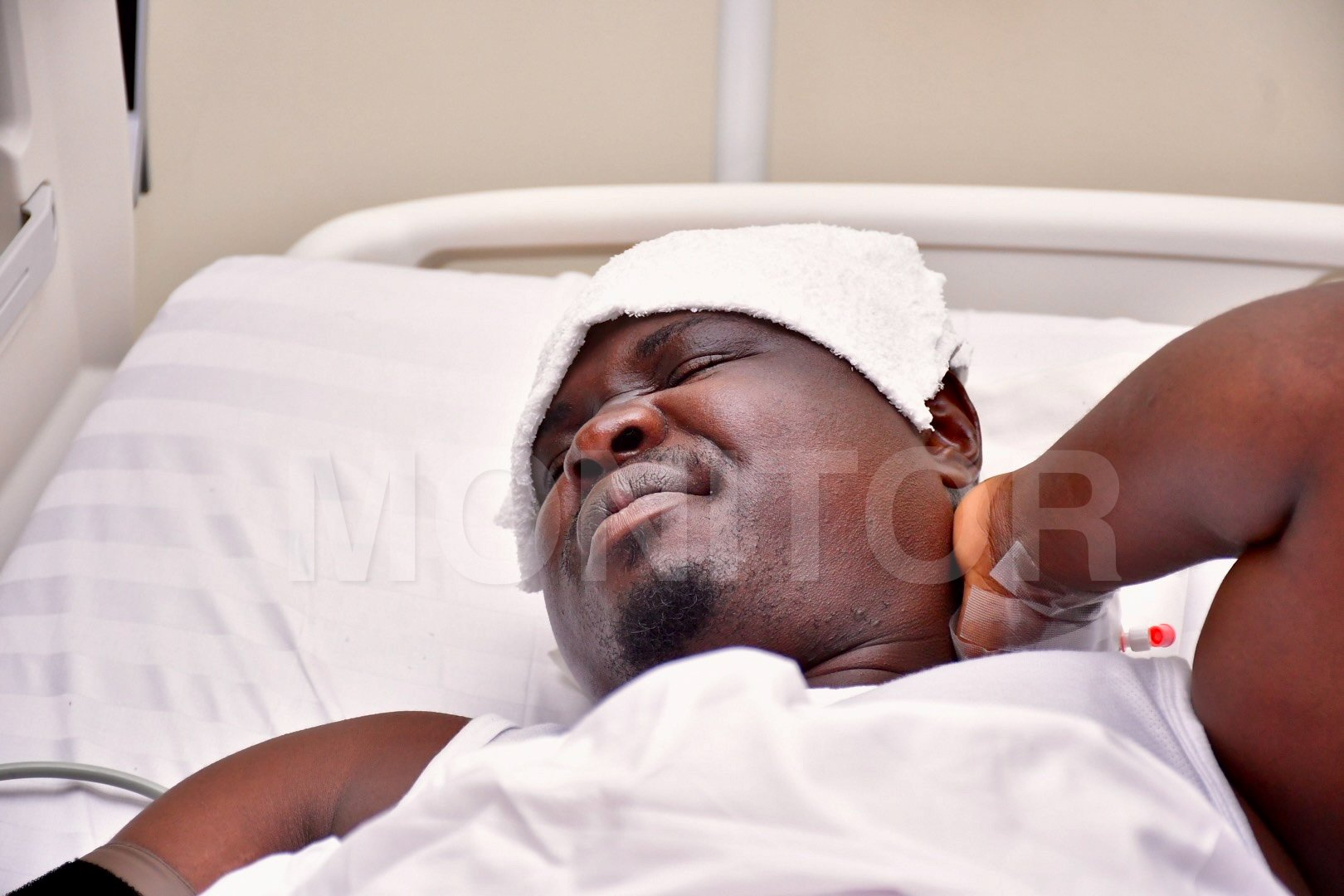Prime
Uganda short of staff to run ICUs, experts warn

Doctors offer palliative care service to patients at Lacor hospital’s ICU ward in Gulu District last year. PHOTO/ TOBBIAS JOLLY OWINY
What you need to know:
- Health experts note that the country will continue to fall short in offering critical medical care even with ICU equipment installed.
Up to 75 per cent of specialists are lacking in hospitals, and some designated Covid-19 treatment centres do not have intensive care units (ICU), health experts have warned.
This comes at a time when the country is facing a second wave of the pandemic.
The country is losing between 37 per cent and 60 per cent of patients admitted in ICUs, study reports by Dr Arthur Kwizera and Dr Stephen Ttendo indicate.
According to a 2019 study by Dr Patience Atumanya from Makerere University College of Health Sciences, the country had only 55 functional beds in 12 ICUs amid a glaring shortage of specialists to run the units.
However, the rise in severe Covid-19 cases that needed ICU admission triggered the Health Ministry to establish more functional ICU beds.
Last year, the ministry promised to set up an ICU with at least 10 functional beds in every regional referral hospital.
Some facilities have got the beds while others are either waiting to receive the equipment or lack space to establish the unit, according to reports from the hospital directors.
But Dr Nodreen Ayupo, the spokesperson of Anaesthesiologists Association of Uganda (AAU), said installing the ICU equipment is far from addressing problems around critical care medicine in the country. Anaesthesiologists work in ICUs as critical care specialists.
“The challenge we face is lack of staff to run the ICUs. Government has made improvement in providing equipment for ICUs,” Dr Ayupo said.
She said the country has only 68 anaesthesiologists and 70 per cent of them work in hospitals located in Kampala.
This leaves regional referral hospitals to survive on the 30 per cent (about 20) anaesthesiologists.
Dr Ayupo said 20 per cent of the 68 specialists are in Mbarara, 5 per cent in Mbale, 2.5 per cent in Gulu and Lira.
She said the AAU recommended to the Health ministry at least six anaesthesiologists per regional referral hospital.
“This will cover ICU, emergency department and operation theatres in each regional referral hospital. For the ICU, you should have at least one anaesthesiologist per shift which is 12 hours,” Dr Ayupo said.
According to the Health ministry, the country has 14 regional referral hospitals.
With the recommended rate of at least six anaesthesiologists per hospital, 84 specialists are needed against 20 who are available.
The AAU blamed the shortage on low pay, limited opportunities for career progression and limited training capacity.
Dr Ayupo said some anaesthesiologists left the country for better opportunities.
“Those (anaesthesiologists) trained in Uganda are 85 but only 68 are practising in the country. Seventy per cent of the anaesthesiologists are working in Kampala,” she said.
However, Dr Charles Olaro, the director of clinical services at the Health ministry, said they have addressed the gaps.
“Apart from providing critical care, we need them (anaesthesiologists) to functionalise all the health centres in the country,” he said.
The director said they have introduced a four-year bachelor’s degree programme at Butsitema University Faculty of Health Sciences to train specialists.
These graduates will be employed as anaesthetic officers, competent to provide other essential services, including critical care, pain management, resuscitation, and emergency medicine.
Dr Olaro said they are also training some health workers in the hospitals to be able to run the ICUs as the country waits for the specialists who will come out of the degree programme.
“Covid-19 has taught us that critical care is one of the areas that we should work on. A number of anaesthesiologists have been training on government scholarships each year and even last year, the government gave them more scholarships,” Dr Olaro said.
The AAU confirmed that around 15 of the specialists have benefitted. Dr Olaro said the desire to become an anaesthesiologist has been low, but added that the trend is changing.
“Previously, not many people were willing to train even when we offered scholarships. We are also identifying a number of health programmes where one can get training while they are working such as fellowships,” he said.
ICU beds in hospitals
1.Entebbe Grade B Hospital - 10
2.Naguru hospital - 10
3.Mbale RRH - 10 (non-functional)
4.Hoima RRH -10
5. Fort Portal hospital- 10
6. Jinja RRH- 10
7. Soroti RRH- 5
8. Moroto RRH- 5
9. Lira RRH- 5
10. Lira Uni teaching hospital - 2
11. Gulu RRH - 5
12.Lacor hospital-5
13. Arua RRH- 5
14.Mbarara RRH-10
15.Kabaale RRH -10
16.Mulago- 27




